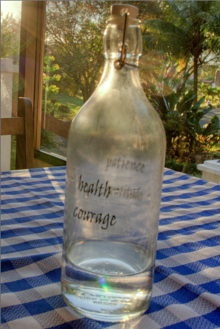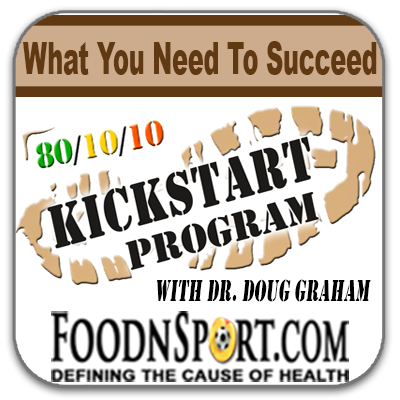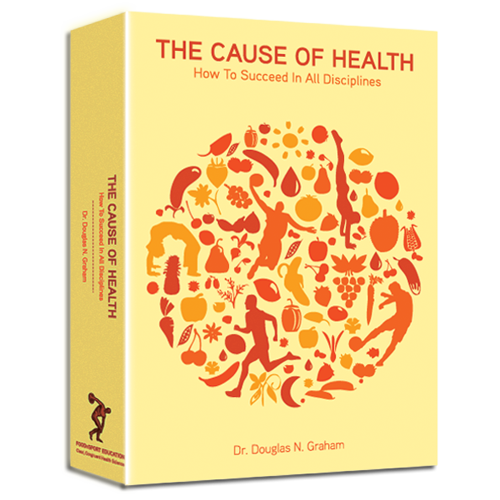
During intense or extended exercise, if you wait to drink until you are thirsty, you are likely already in trouble.
According to sports science, measurable decline in performance is noted when hydration levels drop by as little as
one percent of total body weight. Strength, endurance, speed, and other significant factors are affected adversely. During heavy exercise, especially in hot weather, a grown man could sweat off one percent of his weight in a matter of fifteen minutes! No wonder we see marathon runners, triathletes, and Tour de France riders drinking water every few minutes.
When exercising heavily, especially when there is a strong cardio component to the exertions, much of our digestive functioning is depressed. Digestion and absorption are effectively put on hold so that the body’s physiology can best support the exercise being undertaken. When at rest, a person might drink two or three glasses of water, one right after the next, with no problem. Many people can easily drink a quart of water, and some people two quarts, with no repercussions, requiring but a few minutes to absorb the lot. But when performing cardio exercise, more than just a few sips of water will result in great discomfort, as the water will simply sit in the stomach and slosh around, and will not be absorbed. Small quantities of water consumed often will work far better than waiting until you are a quart or two behind in your water needs. You will be more comfortable, and will perform better, if you drink small quantities with frequency.

Hence we have a clear case of intellect over instinct. Performance will be hindered before you even sense that you are thirsty. If you know you are going to be intensely active for an extended time, or in extremely hot conditions, or both, drinking sufficient water is a must – before during and after you exercise. The risk of heat exhaustion is real.
While it is true that those of us following the principles of The 80/10/10 Diet tend to have more physiological leeway than others when it comes to hydration, we still are affected adversely when our water levels go low. You must do more than simply obey your thirst. You must pay attention to the other dehydration signals your body gives, plan ahead for extended exertions, and respect the weather conditions. Do not wait until thirst threatens to bring your play to a halt. Drink as you go, and stay hydrated. When dehydration hits, it isn’t pretty, and your ability to stay active will grind to a halt, possibly for many days.
Articles and Videos:
- Is There a Relationship Between Chronic Fatigue and Body Fat?
- Human Energy by Dr. Graham
- What is the secret to fitness? by Dr. Graham
- 32 Elements of Health: How Round is Your Wheel? by Luke Sartor
- Persistent and Consistent by Dr. Graham
- Importance of Biomechanics : 3 Factors to Physical Performance by Dr. Graham
- Training in “No Man’s Land” brings mediocre results, at best
- Running On Fruit…Across The UK! : Fruit-Powered Athletes Are Unstoppable…
Retreats:
Practical Skills To Thrive |
Banana Island Escape |
Memberships:
Solidify Your Foundation |
Lifestyle To The Next Level |
Self-Study Materials:
The 80/10/10 Get Started Combo |
The Cause Of Health Dr. Graham’s Lectures (10-CD Set) |
Raw Health Series 2: Acquiring Vibrant Health & Keeping It |








